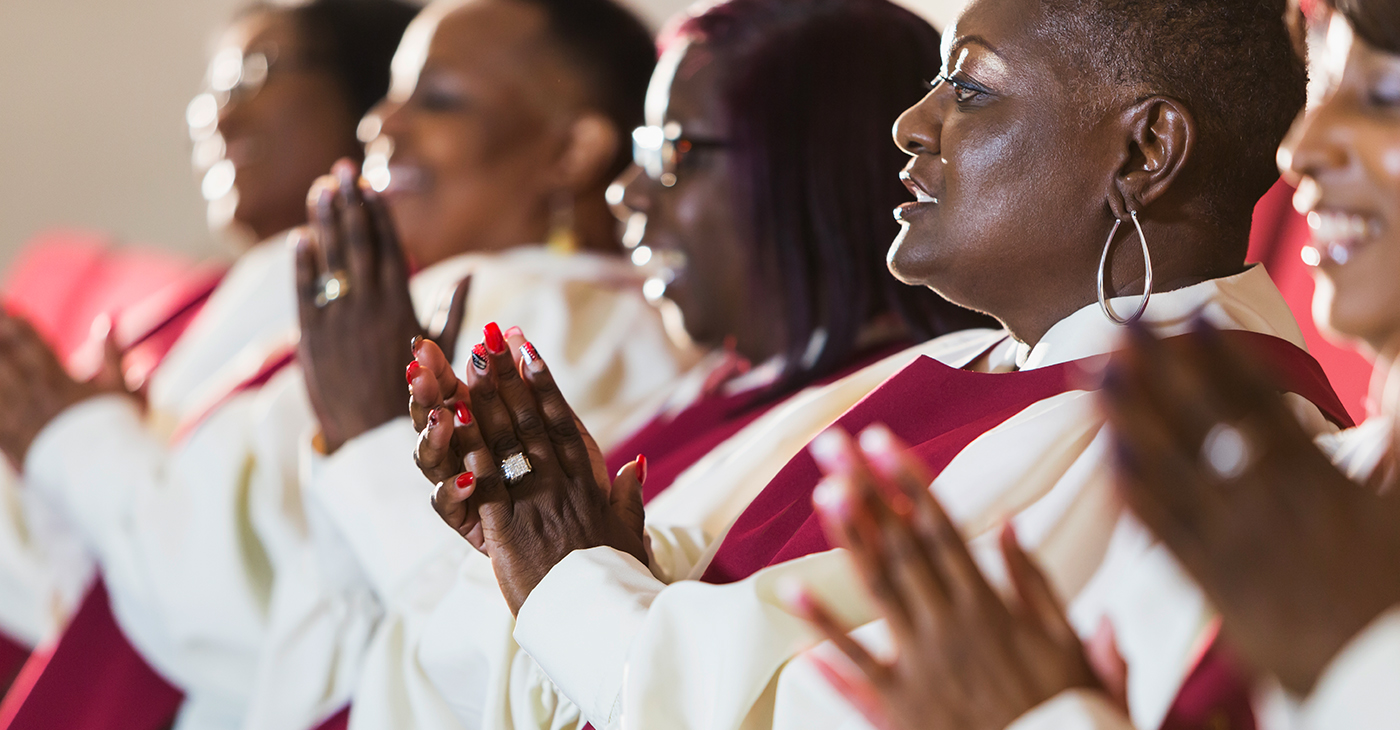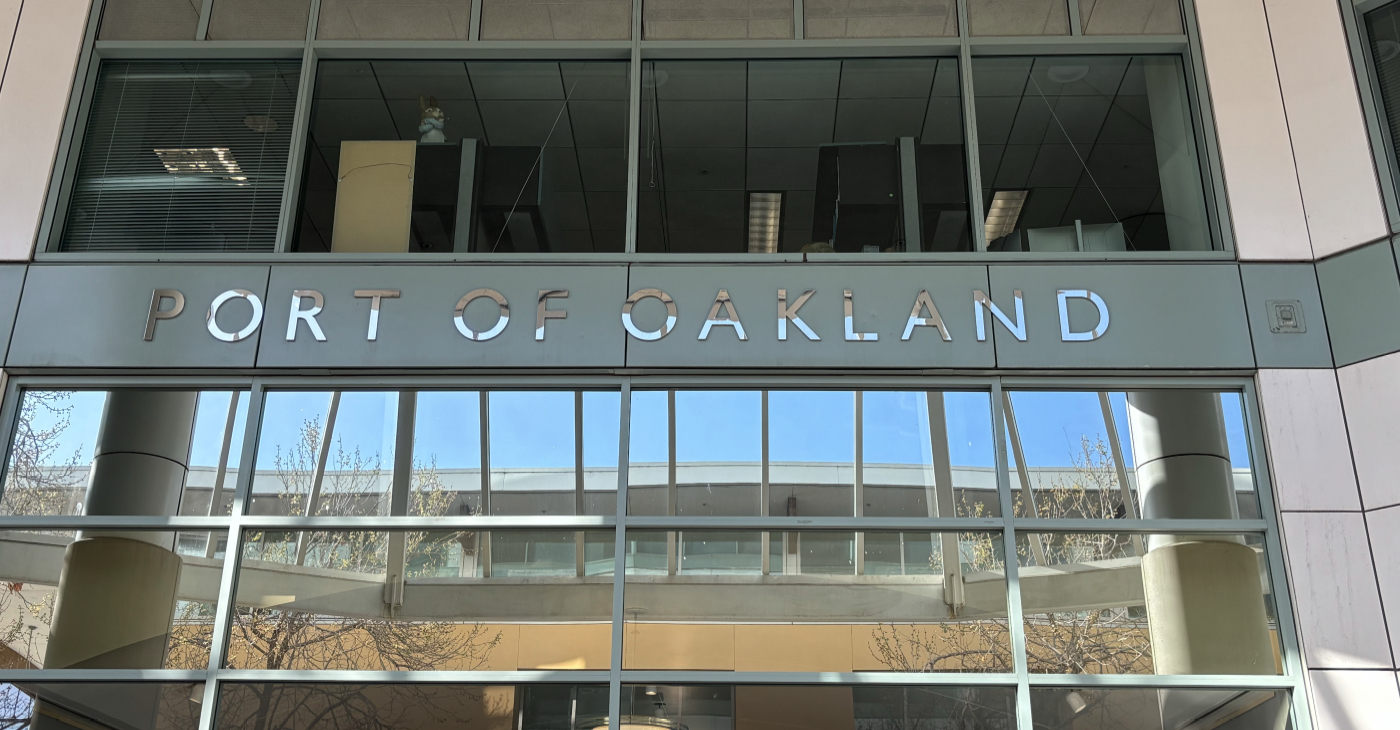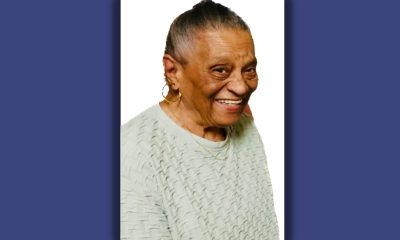Bay Area
COMMENTARY: A Historical Look Back – – Sounds of the Bay Area – Secular and the Sacred
When Southern migrants came to California during the World War II era, they transported their music with them. Music served as a reminder of home; it was like medicine for the soul. The sounds of gospel music found a popular place in the Bay Area.

By Rev. Dr. Martha C. Taylor
The late T-Bone Walker, blues singer, said, “The first time I ever heard a boogie-woogie piano was when I went to church, even the sermon was preached in a blues tone while the congregation yelled amen.” Charlie Yardbird Parker, famous jazz saxophonist frequented the Bay Area during the 40s. Parker once replied to a question about his religious affiliation that he was a devout musician. Even T-Bone Walker’s friends were convinced that he would become a preacher when he stopped singing because of the way he sang the blues. They said it sounded like a sermon. Blues singer Alberta Hunter testified “The blues are like spirituals, almost sacred.”
When Southern migrants came to California during the World War II era, they transported their music with them. Music served as a reminder of home; it was like medicine for the soul. The sounds of gospel music found a popular place in the Bay Area.
Based on traditional choir and quartet singing in southern churches, a cappella gospel music enjoyed an upsurge in popularity as southern black migrants formed new singing groups that toured local communities. Shipyard workers formed gospel groups like the Singing Shipbuilders Quarter (Richmond), Rising Stars Singers (Oakland), and the Paramount Singers (San Francisco).
These two groups, whose members came primarily from Texas and Louisiana, laid the groundwork for later Bay Area gospel groups like the Golden Stars, the Golden West Singers, the Swanee River Singers, the Spartonaires, the Oakland Silvertones, and many others. Church mass choirs began to cut records under the leadership of pastors like G. W. Killens and Carl Anderson.
Opal Nations said Bishop Louis Narcisse sounded like a saved and sanctified blues singer. Blues and gospel music both expressed the struggles of life. Charles Albert Tindley wrote, “I’ll Overcome Someday,” was popular during the Civil Rights era. Betty Reid and her husband Mel Reid opened the first black gospel and blues record store in West Oakland in 1945, Reid’s Records.
Two years later, Mel acquired time on Berkeley’s KRE radio station and broadcast a weekly thirty-minute gospel program called “Religious Gems.” It takes a seasoned saint to remember Reverend George Killens, pastor, Mount Calvary Baptist Church, Oakland, his two-part sermon, “The Cross,” and his congregation singing “Father I Stretch my Hands to Thee,” Mass Choir singing was birthed in the Bay Area.
Some may recall the J. L. Richards Specials and the Voices of Evergreen Baptist Church, a mass choir that broadcast for fifteen minutes on Sunday nights on radio station KWBR and Antioch Baptist Church (featuring the Reverend R. T. George, a master preacher and musician). Sunday night was the time when all ears were tuned into the radio to hear old-fashioned preaching and singing.
“Jumpin” George Oxford was one of the beloved D. J.’s of the 1950s. His focus was on race records, catering to Blacks as did Bouncin’ Bill Doubleday on KWBR and Don Barksdale, former-basketball-star-turned D. J. in the late 1950s. Barksdale was the owner of the Sportsman on Grove Street and the Showcase on Telegraph Avenue, both in Oakland.
Ray Dobard moved from New Orleans to Berkeley during World War II. Dobard established a music publishing business, providing a chance for locals to get their music on “wax” and to a larger audience. Many of Dobard’s fine gospel sides featured King Narcissee, the Golden West Singers, and others.
Jesse Jaxyson moved to West Oakland in the 1930s. A member of the First Church of Religious Science. There he met Clarissa Mayfield, a choir member at his church, and together they set up a radio repair shop at 1606 7th Street, Oakland. He had a room converted into a makeshift recording studio that he ran along with Bob Geddins. Bob Geddins, called the ‘Father of Oakland Blues,’ began pressing records at his West Oakland plant at 8th and Center Streets.”
As we fast forward, it was Edwin and Walter Hawkins, two brothers that completely changed the genre of religious music with the remake of an eighteenth-century song, “Oh Happy Day” featuring Dorothy Morrison and the Edwin Hawkins singers became the first cross over music creating a new contemporary gospel genre. The song created controversy within the church, because it sounded secular.
The Hawkins launched a new sound of gospel music fused with a secular sound paving the way for future artists such as Kirk Franklin, Byron Cage, Fred Hamond, Yolonda Adams and more.
Activism
Oakland Post: Week of April 17 – 23, 2024
The printed Weekly Edition of the Oakland Post: Week of April 17 – 23, 2024

To enlarge your view of this issue, use the slider, magnifying glass icon or full page icon in the lower right corner of the browser window. ![]()
Activism
Oakland Schools Honor Fred Korematsu Day of Civil Liberties
Every Jan. 30, OUSD commemorates the legacy of Fred Korematsu, an Oakland native, a Castlemont High School graduate, and a national symbol of resistance, resilience, and justice. His defiant stand against racial injustice and his unwavering commitment to civil rights continue to inspire the local community and the nation. Tuesday was “Fred Korematsu Day of Civil Liberties and the Constitution” in the state of California and a growing number of states across the country.

By Post Staff
Every Jan. 30, OUSD commemorates the legacy of Fred Korematsu, an Oakland native, a Castlemont High School graduate, and a national symbol of resistance, resilience, and justice.
His defiant stand against racial injustice and his unwavering commitment to civil rights continue to inspire the local community and the nation. Tuesday was “Fred Korematsu Day of Civil Liberties and the Constitution” in the state of California and a growing number of states across the country.
One OUSD school is named in his honor: Fred T. Korematsu Discovery Academy (KDA) elementary in East Oakland.
Several years ago, founding KDA Principal Charles Wilson, in a video interview with anti-hate organization “Not In Our Town,” said, “We chose the name Fred Korematsu because we really felt like the attributes that he showed in his work are things that the children need to learn … that common people can stand up and make differences in a large number of people’s lives.”
Fred Korematsu was born in Oakland on Jan. 30, 1919. His parents ran a floral nursery business, and his upbringing in Oakland shaped his worldview. His belief in the importance of standing up for your rights and the rights of others, regardless of race or background, was the foundation for his activism against racial prejudice and for the rights of Japanese Americans during World War II.
At the start of the war, Korematsu was turned away from enlisting in the National Guard and the Coast Guard because of his race. He trained as a welder, working at the docks in Oakland, but was fired after the bombing of Pearl Harbor in 1941. Fear and prejudice led to federal Executive Order 9066, which forced more than 120,000 Japanese Americans out of their homes and neighborhoods and into remote internment camps.
The 23-year-old Korematsu resisted the order. He underwent cosmetic surgery and assumed a false identity, choosing freedom over unjust imprisonment. His later arrest and conviction sparked a legal battle that would challenge the foundation of civil liberties in America.
Korematsu’s fight culminated in the Supreme Court’s initial ruling against him in 1944. He spent years in a Utah internment camp with his family, followed by time living in Salt Lake City where he was dogged by racism.
In 1976, President Gerald Ford overturned Executive Order 9066. Seven years later, the 9th Circuit Court of Appeals in San Francisco vacated Korematsu’s conviction. He said in court, “I would like to see the government admit that they were wrong and do something about it so this will never happen again to any American citizen of any race, creed, or color.”
Korematsu’s dedication and determination established him as a national icon of civil rights and social justice. He advocated for justice with Rosa Parks. In 1998, President Bill Clinton gave him the Presidential Medal of Freedom saying, “In the long history of our country’s constant search for justice, some names of ordinary citizens stand for millions of souls … To that distinguished list, today we add the name of Fred Korematsu.”
After Sept. 11, 2001, Korematsu spoke out against hatred and discrimination, saying what happened to Japanese Americans should not happen to people of Middle Eastern descent.
Korematsu’s roots in Oakland and his education in OUSD are a source of great pride for the city, according to the school district. His most famous quote, which is on the Korematsu elementary school mural, is as relevant now as ever, “If you have the feeling that something is wrong, don’t be afraid to speak up.”
Bay Area
Port of Oakland Commission Votes to Change Oakland Airport to ‘San Francisco Bay Oakland International Airport’
The Port of Oakland Commission voted unanimously to change the name of Metropolitan Oakland International Airport to San Francisco Bay Oakland International Airport at a commission meeting Thursday afternoon. The Port initially announced the name change on March 29, claiming that the change will attract more passengers and enhance the airport’s visibility. They contend that the airport often gets neglected by the public’s lack of knowledge of Oakland’s proximity to San Francisco.

By Magaly Muñoz
The Port of Oakland Commission voted unanimously to change the name of Metropolitan Oakland International Airport to San Francisco Bay Oakland International Airport at a commission meeting Thursday afternoon.
The Port initially announced the name change on March 29, claiming that the change will attract more passengers and enhance the airport’s visibility. They contend that the airport often gets neglected by the public’s lack of knowledge of Oakland’s proximity to San Francisco.
“We want people to know where Oakland is and how beautiful our city is. We want them to visit, we want them to spend their money, and we want to keep our money into our local economy,” Port Commission President Barbara Leslie said at the meeting.
The commissioners shared anecdotal experiences and research to explain how this new name change will elevate and add to the growth of Oakland, not take away from their Bay Area neighbors.
The Port claimed that local residents had been asking for more options in domestic and international flights, but in order to do that, outside travelers need to be aware of Oakland’s presence first.
Since the announcement of the new name, San Francisco leaders strongly opposed the suggestion for a change, the City Attorney going as far as threatening legal action.
SF City Attorney David Chiu announced Monday that his team sent a letter to the Port of Oakland, writing that if Oakland goes forward with the name change, the city will go forward with a lawsuit to prevent the use of their trademarked name.
San Francisco owns U.S. federal trademark registrations for the marks “San Francisco International Airport”, the letter says.
Chiu further claimed that the name change will only cause confusion and chaos for travelers who are used to seeing the San Francisco name in the SFO trademark.
“We want to see the entire Bay Area thrive as a tourist destination and expand our offerings to visitors, but this proposal is not a legal or practical way to go about it. If Oakland moves forward with this proposal, San Francisco will pursue legal action to prevent misuse of our trademark,” Chiu said.
SF Mayor London Breed joined Chiu’s letter, stating that Oakland does not need to add the internationally popular city to its brand in order to grow its services.
“[Oakland] is rich in culture and wonderful people and has its own unique identity. It does not need the name San Francisco as part of its airport to stand out,” Breed wrote.
The Port defended its proposed actions, saying that if the vote did go forward, they would “take all appropriate measures to defend its right to use this accurate geographic identifier.”
“The proposed name modification will clarify, not confuse. The new name identifies where OAK is actually located, which is on the San Francisco Bay,” a spokesperson said on behalf of the Port.
Support for the name change extends beyond the Port. Several regional leaders, airlines and community members have come out in support of the name change, including Oakland Mayor Sheng Thao.
“This adjustment isn’t just about signage—it’s about inviting travelers to discover all that Oakland and the region have to offer. From our local dining scene to unique shopping spots and cozy hotels, there’s something here for everyone. Let’s work together to ensure that Oakland Airport continues to serve as a welcoming gateway for visitors and a source of pride for our community,” Thao said.
Because of public outcry amongst residents and leaders in Oakland and San Francisco before and during the Commission meeting, the Board decided to extend the second reading for the proposed name change from the end of April to the first meeting in May. This decision will allow commissioners to connect with community groups and leaders over their concerns for the change.
The Port Commission is scheduled to hold a second reading of the proposed name change on May 9.
-

 Activism4 weeks ago
Activism4 weeks agoOakland Post: Week of March 20 – 26, 2024
-

 #NNPA BlackPress3 weeks ago
#NNPA BlackPress3 weeks agoCOMMENTARY: D.C. Crime Bill Fails to Address Root Causes of Violence and Incarceration
-

 #NNPA BlackPress4 weeks ago
#NNPA BlackPress4 weeks agoFrom Raids to Revelations: The Dark Turn in Sean ‘Diddy’ Combs’ Saga
-

 #NNPA BlackPress3 weeks ago
#NNPA BlackPress3 weeks agoMayor, City Council President React to May 31 Closing of Birmingham-Southern College
-

 #NNPA BlackPress4 weeks ago
#NNPA BlackPress4 weeks agoCOMMENTARY: Lady Day and The Lights!
-

 Activism3 weeks ago
Activism3 weeks agoOakland Post: Week of March 27 – April 2, 2024
-

 #NNPA BlackPress4 weeks ago
#NNPA BlackPress4 weeks agoBaltimore Key Bridge Catastrophe: A City’s Heartbreak and a Nation’s Alarm
-

 #NNPA BlackPress4 weeks ago
#NNPA BlackPress4 weeks agoBaltimore’s Key Bridge Struck by Ship, Collapses into Water














































